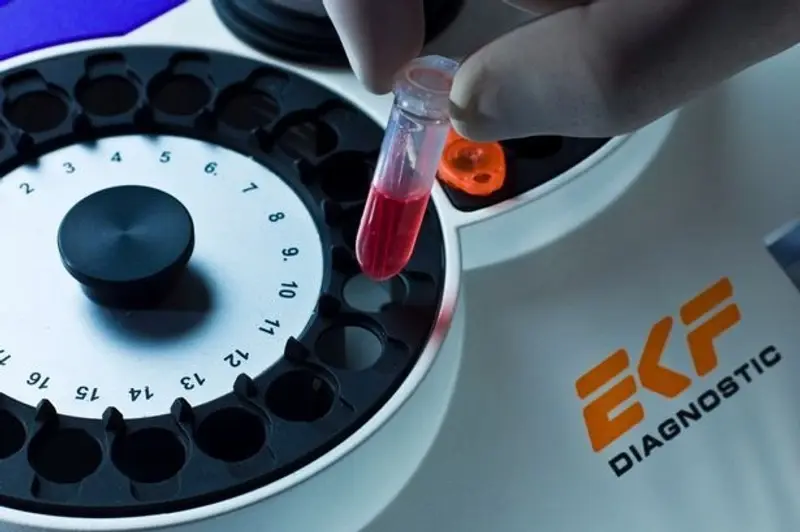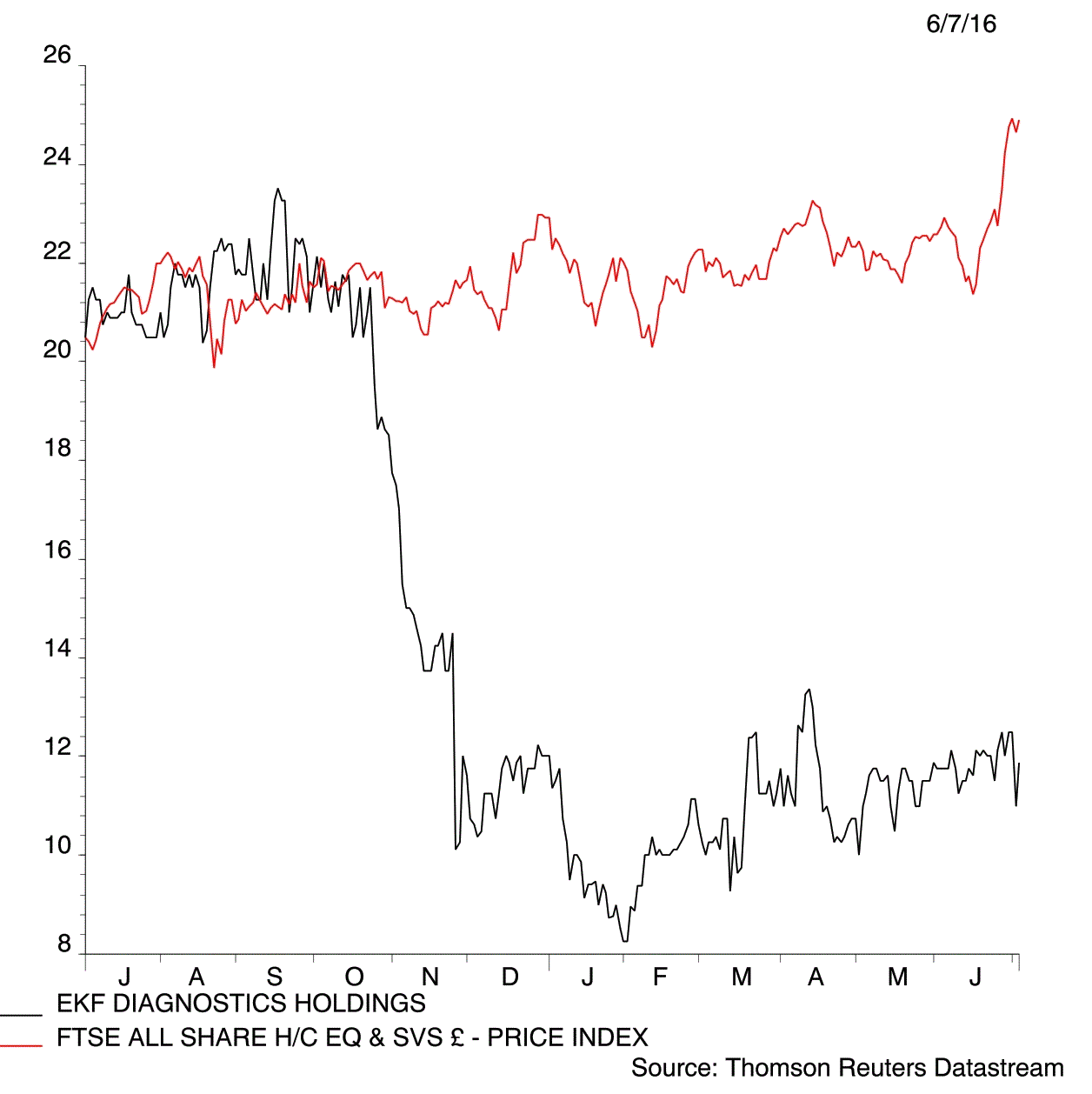
There has been enough drama at EKF Diagnostics (EKF:AIM) in the past year to fill a week’s worth of airtime on BBC soap EastEnders.
First the board were looking to sell the diagnostic maker. Then they decided not to. Then the executive chairman was demoted to deputy, replaced by shareholder and diagnostic veteran Ron Zwanziger in November.
He lasted just six months. Several other directors have also left the board in recent months. Did I mention November’s profit warning?
But the Cardiff-based business appears to have stabilised.
New non-executive chairman Christopher Mills is overseeing a turnaround plan that is showing signs of success.
An update put earnings before interest, tax, depreciation and amortisation (EBITDA) ahead of expectations in the six months to 30 June. Shares moved 9.4% higher to 13p on the news.
Management now expect EBITDA of between £3.5 million to £4 million for 2016, compared to a £300,000 loss a year earlier.
This is mainly a result of sales expected to exceed £16.5 million for the interim period. A new contract in the Middle East helped here.
The board had to abandon plans to sell EKF due to a lack of interest last October (23 Oct 2015). Shareholders were concerned that management had paid too much for Selah Genomics in March 2014 and new leadership was sought with the business a month away from issuing a profit warning.
The new strategy is to focus on the point-of-care business, which makes and sells testing devices that can be used outside of labs. This plan has seen the sale of loss-making divisions and job losses.
A £4.7 million placing in June helped strengthen the balance sheet.
Panmure Gordon has upgraded its forecasts following the update. Revenue is now expected to be 5% higher at £32.2 million in 2016, while EBITDA jumps 19% to £3.9 million.
Analysts Julie Simmonds says that these are conservative estimates.
‘Positive progress has been seen across the business, both in top line performance, implementation of the restructuring plan and improvement in net debt helped by the £4.75 million financing in early June,’ she adds.
Management expect little impact from Brexit. Its EU customers are served from EU offices.
Another benefit is a weak pound with more than 55% of revenue in US dollars.
‘We expect this to give the opportunity for further upgrades in H2 2016,’ says Simmonds. ‘However, this may result in lower reported growth going in to our more cautious 2017 estimates.’





